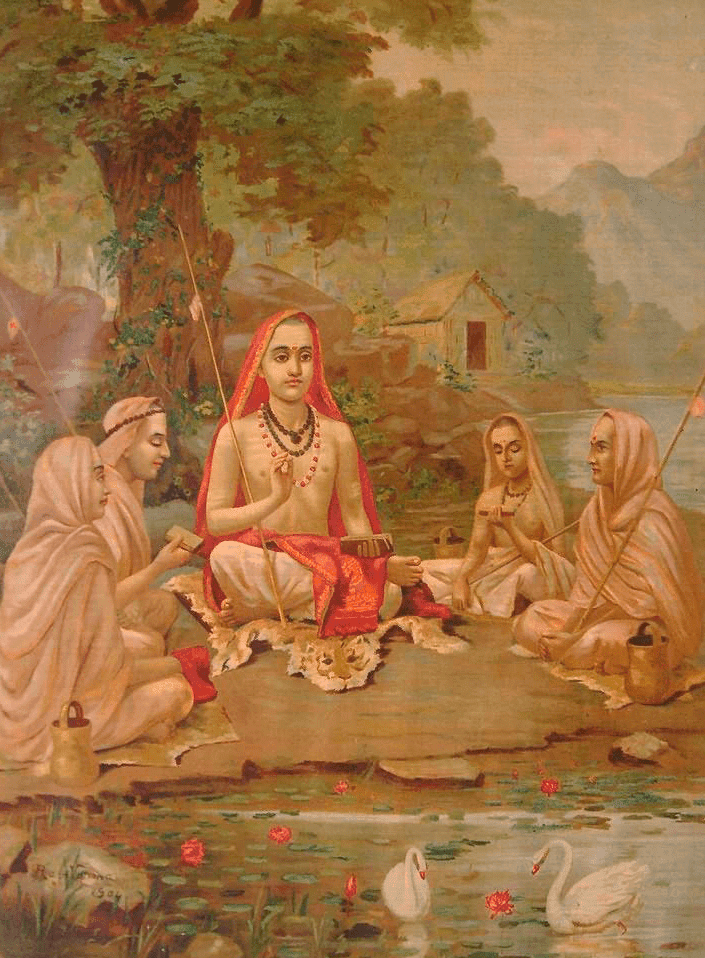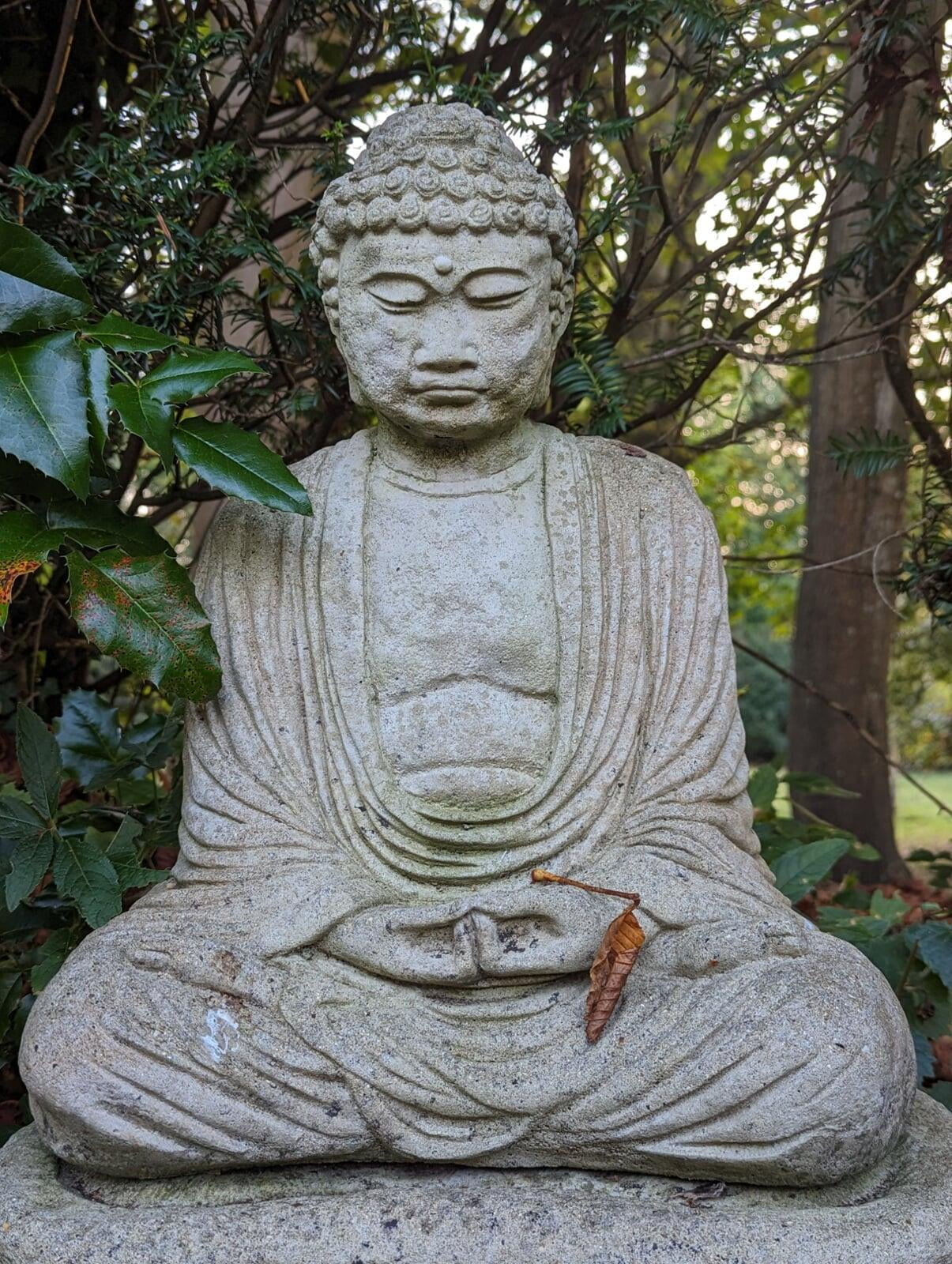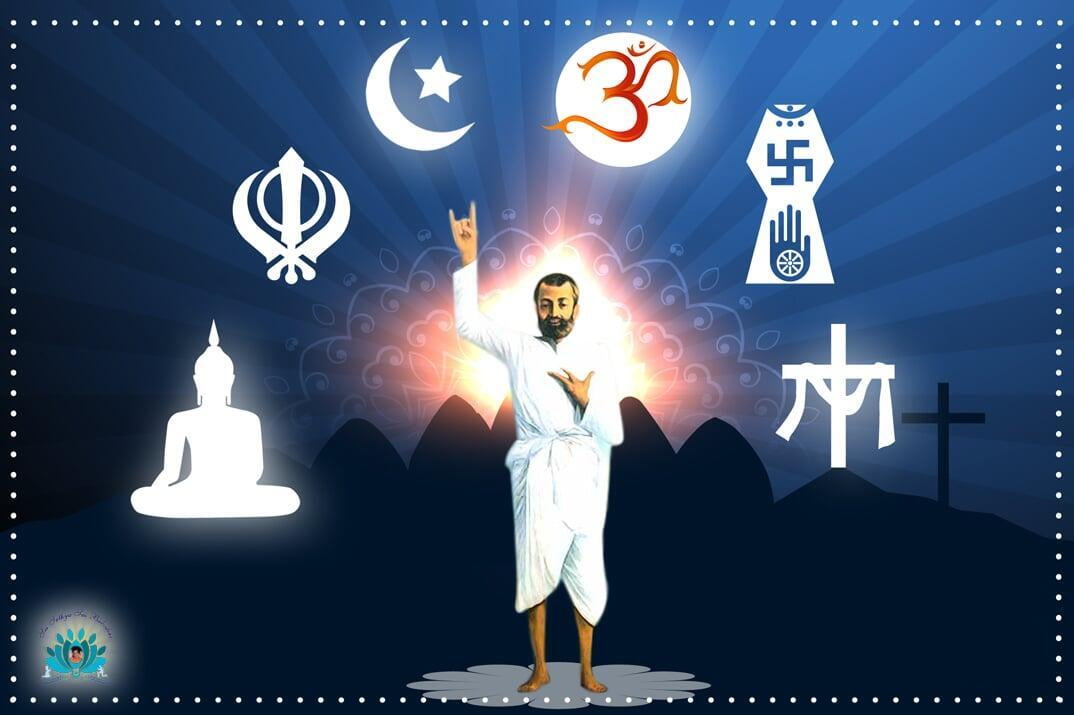The truth is one, the wise call it by various names -Rig Veda
"Vedanta" is a combination of two words: "Veda", which means "knowledge", and "anta", which means "the end" or "the goal of"
In this context, the goal of knowledge is not intellectual - the limited knowledge we acquire through books. "Knowledge" here means the knowledge of God, as well as the knowledge of our own divine nature.
- Vedanta represents the timeless quest of the human soul for the Eternal and the Infinite
- The concepts of the Upanishads, most of which were articulated by the sages between 1,000 b.c. and 300 b.c., were systematised in subsequent centuries to form the Vedanta philosophy.
Vedanta is not a religious creed or dogma
According to Vedanta, religion is experience and not mere acceptance of certain honoured dogmas or creeds.
- Vedanta asserts the essential non-duality of God, soul and universe, the apparent distinctions being created by names and forms which, from the standpoint of ultimate reality, do not exist. It regards the various deities of the different faiths as diverse manifestations of the one God.
Vedanta accepts all religions as true
- According to the Vedas, ultimate reality is all-pervading, uncreated, self-luminous eternal spirit, the final cause of the universe, the power behind all tangible forces, the consciousness that animates all conscious beings.
- It is the central philosophy of the Vedantist, and his religion consists of meditation on this spirit and prayer for the guidance of his intellect along the path of virtue and righteousness.
From the philosophical standpoint, Vedanta is non-dualistic, and from the religious standpoint, monotheistic
We may quote scripture, engage in rituals, perform social service, or pray with regularity, but unless we realise the Divine spirit in our hearts, we are still phenomenal beings, victims of the separative existence.
- One can experience God as tangibly as a fruit lying on the palm of one's hand, which means that in this very life we can suppress our lower nature, manifest our higher nature, and become perfect.
- Man is not essentially a sinner, but pure. However, this purity is, as it were, covered by evil propensities of mind, which are to be removed by moral and spiritual discipline. Consequently, when mind becomes free from such dross, the ever pure nature of man shines forth.
God is Sat-Chit-Ananda - infinite existence, infinite consciousness and infinite happiness
Through the experience of God, one's doubts disappear and the knots of the heart are cut asunder.
- By ridding himself of the desires clinging to his heart, a mortal becomes immortal in this very body. That the attainment of immortality is not the prerogative of a chosen few but the birthright of all is the conviction of every follower of Vedanta.
- Vedanta asserts that Truth is universal and all humankind and all existence are one. It teaches the unity of Godhead, or ultimate Reality, and accepts every faith as a valid means for its own followers to realise the Truth.

The four cardinal principles of Vedanta may be summed up as follows:
THE SCIENCE OF HUMAN POSSIBILITIES

Practice

Self Control
HE WHO HAS NO SELF-CONTROL ACTS AS THE GREATEST OBSTACLE TO HIMSELF. ''FACE THE BRUTE!'' SAID SWAMI VIVEKANANDA. IT IS MORE BENEFICIAL TO PRACTICE DETACHMENT IN THE FACE OF SENSE OBJECTS THAN TO PRACTICE MEDITATION FOR HOURS AND HOURS.

Face the Facts
NEVER DO IT TIMIDLY. REMEMBER, YOU HAVE WITHIN YOU WHAT IT TAKES TO FACE THE WHOLE UNIVERSE. THIS IS HOW ONE CAN BUILD A MORE UPLIFTING AND EFFICIENT LIFESTYLE. A LIFESTYLE WHICH IS LIBERATING AND REVEALING OF THE KEYS TO SUCCESS IN ALL ASPECTS OF YOUR EXISTENCE; EMOTIONAL, PHYSICAL, INTELLECTUAL AND SPIRITUAL.

Faith

VISITING HOURS
Mornings 08:00 TO 12:00
Evenings 15:00 TO 19:00
10:30AM SPIRITUAL DISCUSSION OR PERSONAL INTERVIEWS (WITH PRIOR APPOINTMENT )
VISITING HOURS
Mornings 08:00 TO 12:00
